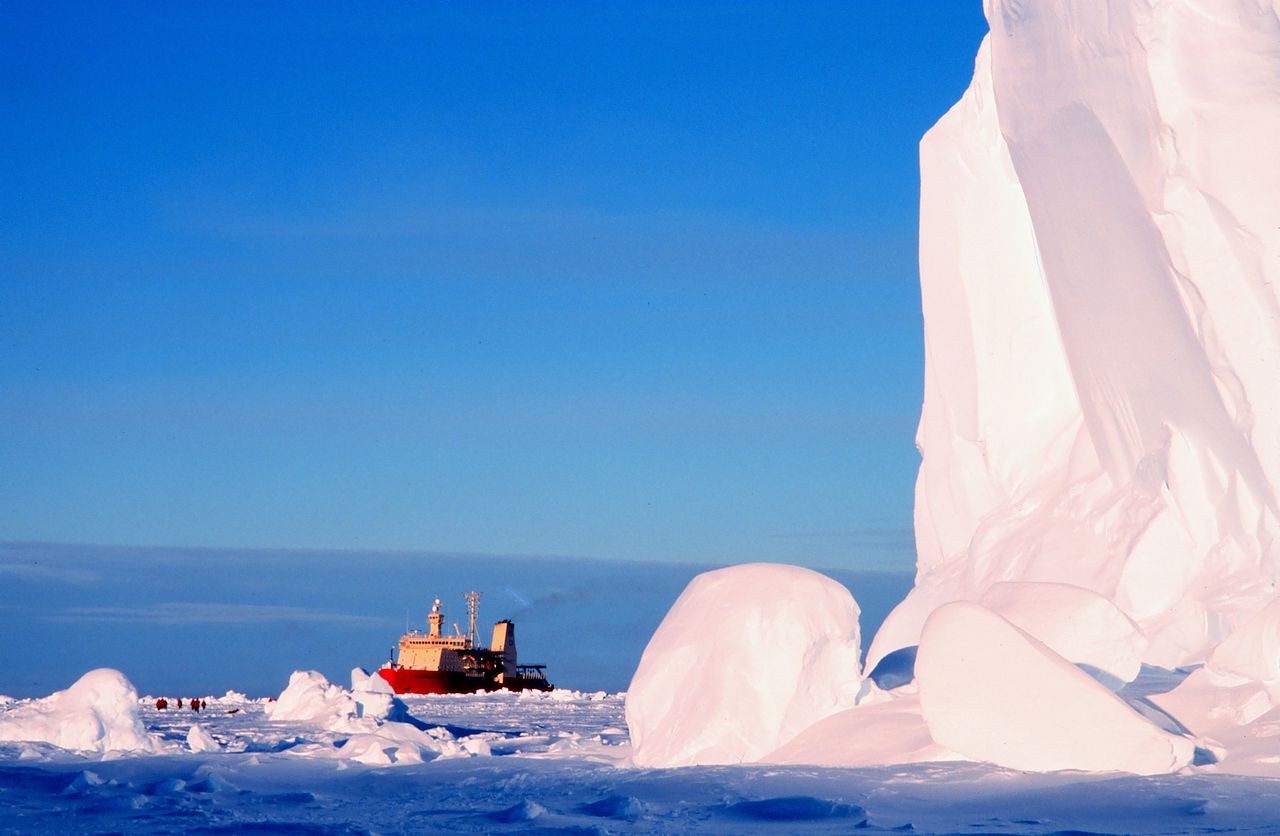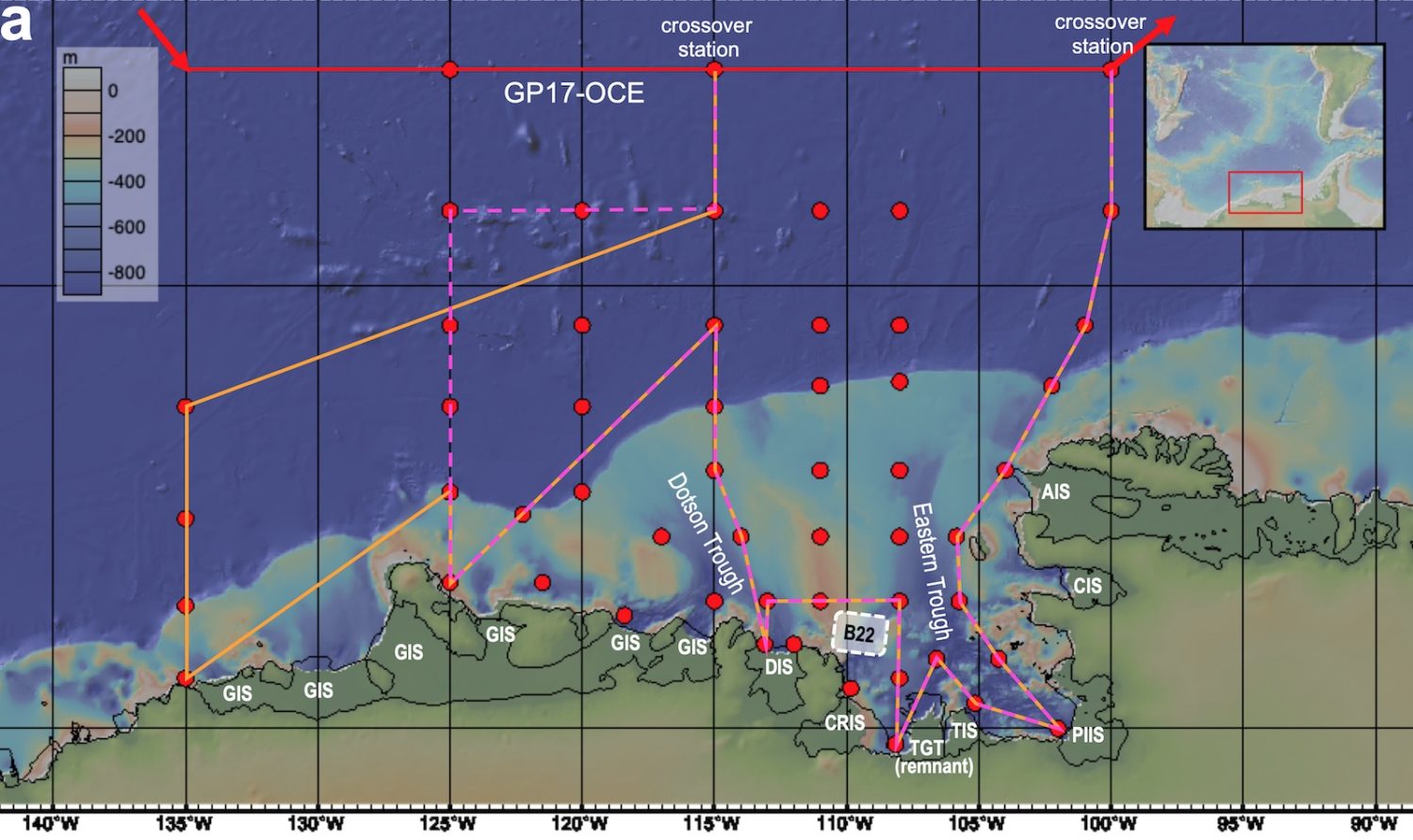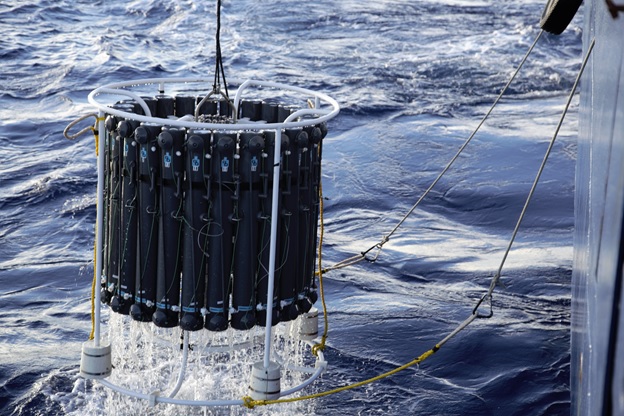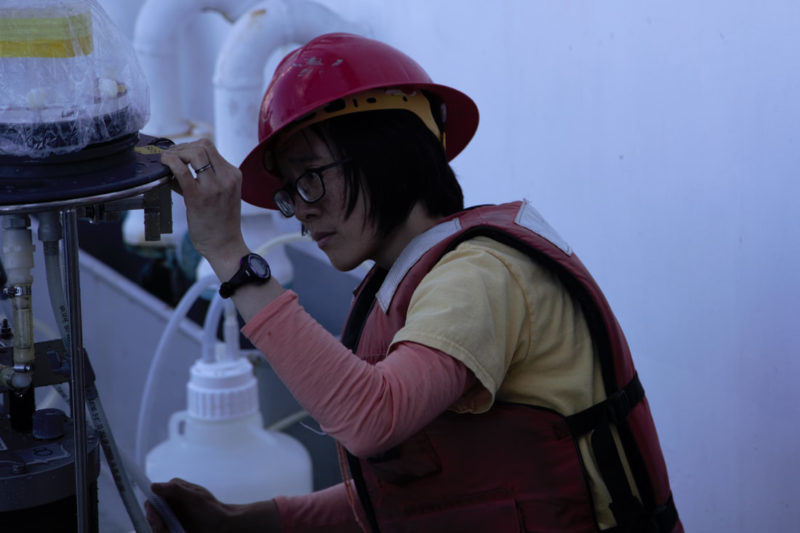
CASW announces Antarctic expedition reporting opportunity
The GEOTRACES team will explore the Amundsen Sea with the R/V Nathaniel B. Palmer, shown here making its way along the Ross Ice Shelf in the Bay of Whales in 1999. (Public domain image by Michael Van Woert, NOAA NESDIS, ORA)
The application deadline for this fellowship has passed.
The Council for the Advancement of Science Writing is pleased to announce a fellowship that will enable an early-career science journalist to accompany a major oceanographic expedition to Antarctica’s Amundsen Sea. The project will investigate how rapid glacier melting and associated processes are affecting the chemistry of the world’s oceans, a less-known aspect of global climate change.

The selected journalist will receive a reporting grant and a berth aboard the R/V Nathaniel B. Palmer, a research icebreaker, from November 2023 through January 2024. Applications will be accepted until January 31, 2023. The journalist will be expected to attend an expedition planning meeting March 13-14, 2023 at Old Dominion University in Norfolk, VA. Travel costs for the planning meeting will be reimbursed. Necessary travel from U.S. points of origin in connection with the cruise will be arranged and paid for by the U.S. Antarctic Program.
The 65-day expedition is part of GEOTRACES, an international research effort that aims to better understand the oceanic cycling of trace elements and isotopes, which play critical roles in regulating ocean ecosystems and the global carbon cycle, and provide critical records of past environmental conditions. A group of U.S.-based researchers, supported by the National Science Foundation, will co-lead the cruise to collect seawater, sediment and atmospheric samples in a region where warm ocean waters are melting glacial ice shelves at an increasing rate.

There is wide awareness that the rapid melting of Antarctic glaciers driven by climate warming is contributing to global sea-level rise. The same melting is having many other environmental effects that will be the focus of the expedition. The research will help oceanographers understand the intense phytoplankton blooms in the study region, as well as larger processes, including global ocean circulation and the oceanic uptake of carbon dioxide from the atmosphere.
Oceanographer Phoebe Lam of the University of California at Santa Cruz, one of the principal investigators for the project, has received NSF support to enable an independent journalist to accompany the team, getting an up-close experience of how the work is done—essential background and context for writing about the project results and the issues the researchers are exploring.
CASW will award the fellowship with help from the UC Santa Cruz Science Communication Program, will match the journalist with a project mentor, and will ensure that the journalist can work independently. Like others onboard ship, the journalist may be asked to assist with sampling and sample processing.

The expedition journalist will have opportunities to photograph, record, and report during the voyage, blog and share news via social media. Links to coverage by some who have traveled on earlier cruises to the Amundsen Sea, on topics including glacial collapse and sea level rise, can be found in the FAQ.
The reporting grant of $15,000 is intended to cover direct costs such as equipment and cold-weather gear, medical/dental exams, and any travel costs not covered by the program, and to partially replace forgone income during time away.
Additional information:
- Medical and dental clearance, required per the guidelines of the U.S. Antarctica Program: https://www.ecfr.gov/current/title-45/subtitle-B/chapter-VI/part-675. Exams should be completed by April.
- Details of the planned research program:
- All about GEOTRACES: https://www.geotraces.org/
- About the U.S. GEOTRACES contribution: https://usgeotraces.ldeo.columbia.edu/
Potential candidates should note that this expedition will be going to one of the most remote places on Earth, with poor satellite coverage and thus with very little connectivity to the outside world beyond twice-daily text-only emails. Requests for work-related video or photo transmissions must be arranged ahead of time and are subject to NSF approval. Candidates must be able to handle this type of isolation, both mentally and professionally. For more details, please read the FAQ.